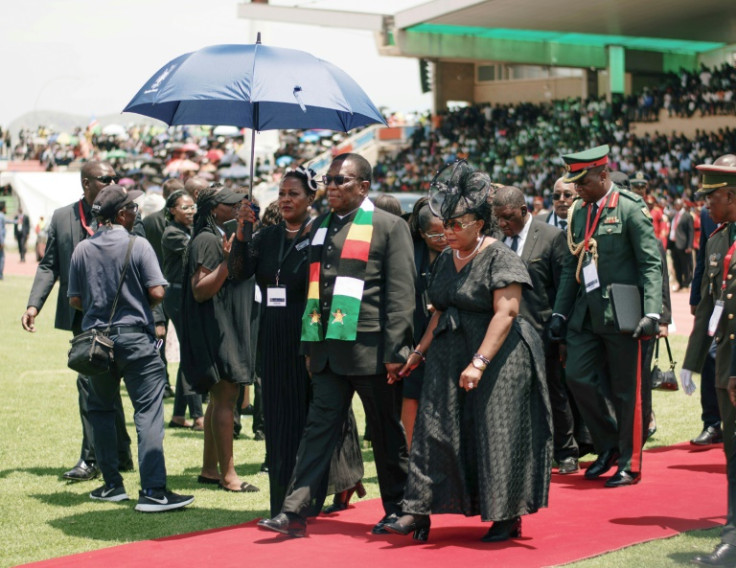US Hits Zimbabwe Leadership In Sanctions Revamp

The United States on Monday imposed sanctions on Zimbabwean President Emmerson Mnangagwa and other senior leaders, replacing a broad two-decade-old pressure campaign with targeted action.
Citing a campaign of rights abuses and corruption, the United States will block any US-based property and prohibit any unofficial travel to the country by the sanctioned Zimbabweans.
"The changes we are making today are intended to make clear what has always been true: our sanctions are not intended to target the people of Zimbabwe," Deputy Treasury Secretary Wally Adeyemo said.
"We are refocusing our sanctions on clear and specific targets: President Mnangagwa's criminal network of government officials and businesspeople who are most responsible for corruption or human rights abuse against the people of Zimbabwe," he said.
Secretary of State Antony Blinken called the new measures were part of a "stronger, more targeted sanctions policy" on Zimbabwe as he voiced concern over "serious cases of corruption and human rights abuse."
"Key individuals, including members of the government of Zimbabwe, bear responsibility for these actions, including the looting of government coffers that robs Zimbabweans of public resources," Blinken said in a statement.
"Multiple cases of abductions, physical abuse, and unlawful killing have left citizens living in fear."
In imposing the sanctions, President Joe Biden issued a declaration abolishing an earlier sanctions program on Zimbabwe launched in 2003.
Zimbabweans sanctioned since then will now see their property unblocked unless named again on Monday, and the country will be removed from a Treasury Department list that regulates sanctions, officials said.
The earlier sanctions -- while also primarily targeting the Zimbabwean leadership under veteran president Robert Mugabe -- were part of a larger pressure campaign led by then president George W. Bush in coordination with Britain following a campaign of forced takeover of land from white farmers.
The Zimbabwean government praised the lifting of the old set of sanctions, which it has long blamed for the country's dire economic situation.
"Well, this is massive," government spokesman Nick Mangwana, wrote on X, formerly known as Twitter, in what he called "a great vindication" of Mnangagwa's foreign policy.
"That said, as long our president is under sanctions Zimbabwe remains under illegal sanctions, as long as members of the First Family are under sanctions, Zimbabwe remains under illegal sanctions, and as long as senior leadership is under sanctions, we are all under sanctions," he wrote.
Mnangagwa, whose party has been in power for more than four decades, was declared the winner of a new term in an election in August that international observers said fell short of democratic standards.
Hopes of a thaw with Zimbabwe briefly surfaced after Mnangagwa pushed Mugabe out of power in 2017, but Western powers and rights groups say that the new leadership has also clamped down on the opposition and protests.
Others targeted by the latest sanctions include First Lady Auxillia Mnangagwa as well as Zimbabwe's first vice president, defense minister and military chief.
Blinken earlier said that the United States would deny entry into the United States of anyone seen as impeding the fairness of the last election.
© Copyright AFP {{Year}}. All rights reserved.





















